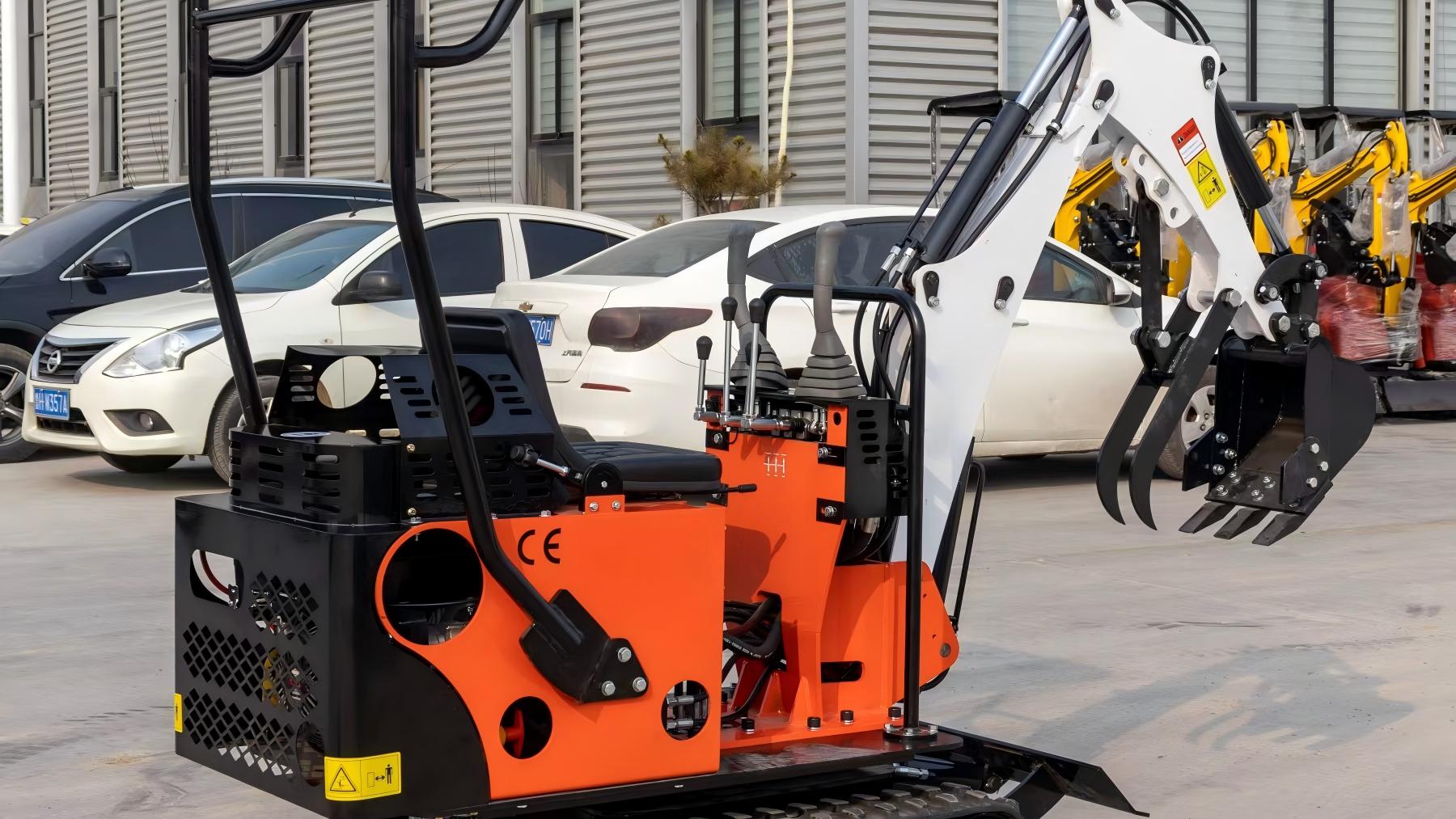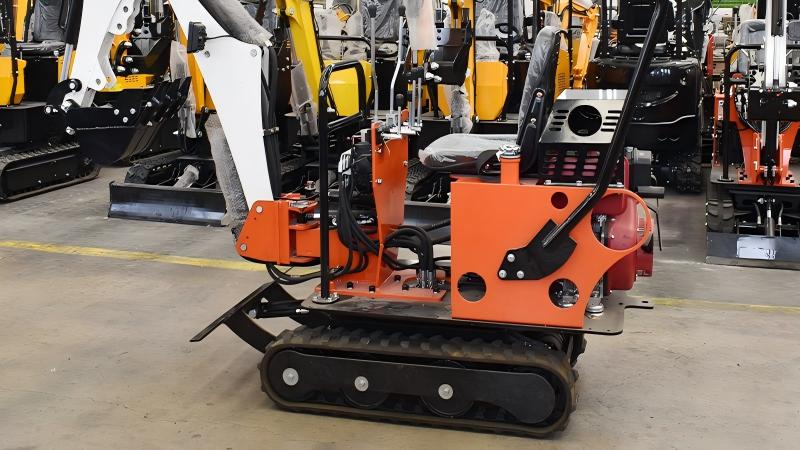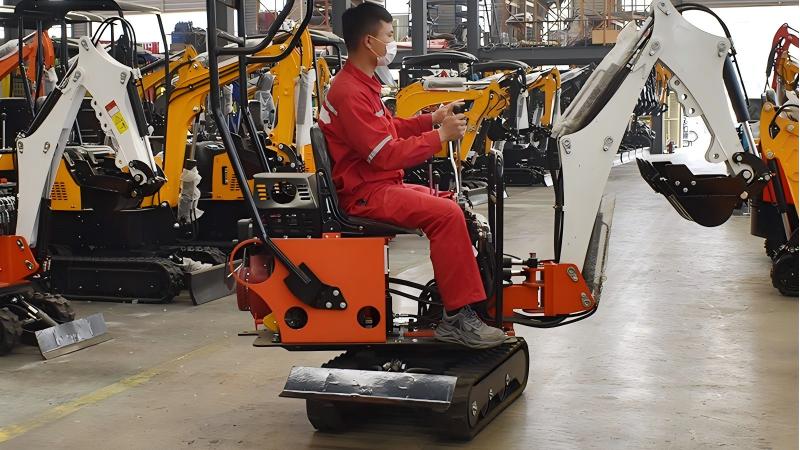Online Marketplaces and Aggregators
In the digital age, online platforms have become the primary hub for buying and selling heavy equipment. These marketplaces offer vast inventories, allowing buyers to search by make, model, year, hours, location, and price.
Pros:
Extensive Inventory: Access to thousands of listings from multiple sellers worldwide.
Convenience: Browse and compare options from the comfort of your office or home.
Detailed Filters: Refine searches to pinpoint specific models, attachments, or conditions.
Seller Information: Many platforms provide seller ratings, contact information, and sometimes even inspection reports.
Cons:
"As Is" Sales: A significant portion of online listings are "as is," meaning no warranties.
Discrepancy Between Listing and Reality: Photos can be deceiving, and descriptions might omit critical details about wear or damage.
Logistics: Arranging inspection, shipping, and payment can be complex, especially for international purchases.
Fraud Risk: While less common on reputable sites, private seller listings can carry a higher risk of misrepresentation or fraud.
Key Platforms:
Ritchie Bros. Auctioneers (including IronPlanet and Marketplace-E): A global leader in heavy equipment auctions, offering both live and online events. Their IronClad Assurance provides a level of confidence in equipment condition.
Machinery Trader / TractorHouse: Well-established classifieds platforms specifically for heavy equipment and agricultural machinery, offering listings from dealers and private sellers.
EquipmentTrader / CommercialTruckTrader: While broader, these sites also list a significant number of used excavators.
Mascus: A leading European online listing website with a strong global presence, listing used heavy machinery and industrial vehicles.
Boom & Bucket: Focuses specifically on heavy equipment, including a wide array of used excavators.
GovPlanet: Specializes in government surplus equipment, often including well-maintained excavators from public fleets.
AuctionTime: An online-only auction platform frequently used by equipment dealers and owners to sell machinery quickly.
Heavy Equipment Auctions (Physical & Online)
Auctions are a popular method for acquiring used excavators, ranging from massive, multi-day live events to timed online-only sales.
Pros:
Potential for Bargains: With competitive bidding, you might secure equipment below market value.
Wide Variety: Auctions often feature a diverse range of excavator brands, sizes, and ages in a single event.
Transparency (mostly): The bidding process is open, and for reputable auction houses, inspection reports and detailed photos are provided.
Quick Transactions: Once the bid is won, the transaction moves rapidly.
Cons:
"As Is, Where Is": The vast majority of auction sales are final, with no warranties. Thorough inspection before bidding is crucial.
Impulse Buying: The fast-paced environment can lead to emotional bidding and overpaying.
No Test Drives: You typically cannot operate the machine or perform extensive testing.
Buyer's Premiums: Most auction houses charge a buyer's premium (an additional percentage on top of the hammer price).
Transportation: You are responsible for transporting the equipment from the auction site.
Key Auctioneers:
Ritchie Bros. Auctioneers: As mentioned, a global giant with frequent live and online auctions.
IronPlanet: Acquired by Ritchie Bros., it focuses heavily on online auctions with detailed inspection reports.
JJ Kane Auctions: Specializes in utility and construction equipment, often including excavators, with both timed and government equipment auctions.
Bidadoo: Known for weekly online auctions with a focus on detailed condition reports and a 100% guarantee on certain items.
Local Auction Houses: Check for regional and local auctioneers that might specialize in construction equipment.
Equipment Dealers (New & Used)
Authorized dealers of major excavator brands (Caterpillar, John Deere, Komatsu, Volvo, Hitachi, Kubota, etc.) often have a dedicated used equipment division. They also take trade-ins, adding to their pre-owned inventory.
Pros:
Reliability & Trust: Dealers have a reputation to uphold and typically perform inspections and necessary repairs before selling used equipment.
Warranties: Many dealers offer limited warranties on their used excavators, providing peace of mind.
Service & Support: You can often arrange financing, parts, and ongoing service directly through the dealer.
Certified Used Programs: Some manufacturers offer "certified pre-owned" programs that guarantee a certain level of inspection and quality.
Trade-ins: If you have existing equipment, you might be able to trade it in.
Cons:
Higher Price: Generally more expensive than private sales or auctions due to refurbishment, warranties, and overhead.
Limited Brands: Dealers typically only sell the brands they represent, limiting your options if you're looking for a specific competitor's model.
How to Find:
Visit the websites of major excavator manufacturers and use their "dealer locator" tools.
Search online for "used excavator dealers near me" or "heavy equipment sales [your city/state]"
Examples near Washington, D.C.: Stephenson Equipment, GT Mid Atlantic, Carter Machinery.
Private Sellers
Direct purchases from private owners, such as contractors, farmers, or rental companies divesting their fleet, can sometimes yield good deals.
Pros:
Potentially Lower Price: No dealer markups or auction premiums.
Direct Communication: You can speak directly with the previous owner about the machine's history, maintenance, and operational nuances.
Cons:
"As Is" Sale: Almost always sold without warranty.
Limited Selection: You're reliant on what's available in your immediate area.
Lack of Support: No financing, parts, or service support.
Due Diligence is Crucial: You must perform all inspections, verify maintenance records, and handle paperwork yourself. Higher risk of hidden issues.
Payment Security: Need to be cautious about securing payment.
Where to Find:
Online Classifieds: Beyond heavy equipment-specific sites, general classifieds like Craigslist or Facebook Marketplace may have listings (exercise extreme caution).
Industry Networks: Word-of-mouth within local construction or landscaping communities.
Local Businesses: Keep an eye out for "for sale" signs on equipment at local job sites or equipment yards.
Rental Companies
Many large equipment rental companies regularly cycle out older machines from their fleet. These "off-rental" units are often well-maintained, as regular servicing is critical for their rental operations.
Pros:
Well-Maintained: Rental equipment is typically serviced frequently to ensure reliability for customers.
Known History: Rental companies often have detailed maintenance records.
Variety: They carry a wide range of models and sizes.
Cons:
High Hours: Rental machines often accumulate hours quickly, even if they are relatively new in age.
Operator Abuse: Rental equipment can sometimes be subject to more varied operator handling.
Pricing: May be higher than private sales, but competitive with dealer prices for similar condition.
How to Find: Contact major rental companies (e.g., United Rentals, Sunbelt Rentals, Herc Rentals) directly and inquire about their used equipment for sale programs.
Technical Considerations When Buying Used
Regardless of where you find a used excavator, a thorough technical inspection is non-negotiable.
Hour Meter Reading: A critical indicator of wear. Lower hours generally mean less wear, but consider the age of the machine. An older machine with very low hours might have sat idle, leading to other issues.
Engine & Powertrain: Check for excessive smoke, unusual noises, fluid leaks, and proper starting. Look at the oil quality.
Hydraulics: Inspect for leaks at cylinders, hoses, and pumps. Check hydraulic fluid color and smell. Test all hydraulic functions (boom, stick, bucket, swing, travel) for smooth operation, speed, and power. Listen for pump noise.
Undercarriage (for tracked excavators): Inspect tracks, rollers, idlers, and sprockets for wear. This is a very expensive component to replace.
Boom, Stick, & Bucket: Check for cracks, welds (especially poor ones), excessive play in pins and bushings. Worn pins and bushings indicate high hours or insufficient greasing.
Swing System: Check for excessive play in the swing bearing, smooth swing operation, and proper brake function.
Electrical System: Test all lights, gauges, switches, and the battery.
Operator Cabin: Check for functionality of HVAC, controls, and general wear and tear.
Fluid Analysis: For significant purchases, consider sending samples of engine oil, hydraulic fluid, and coolant for professional analysis. This can reveal hidden internal wear.
Maintenance Records: Request and verify service history. A well-documented history is a strong indicator of a well-cared-for machine.
Professional Inspection: If possible, hire a qualified heavy equipment mechanic to perform a pre-purchase inspection.
Conclusion
The market for used excavators is broad and diverse, offering opportunities for various budgets and project scopes. From expansive online marketplaces and competitive auctions to reliable equipment dealers and direct private sales, each avenue presents its own set of advantages and challenges. The key to a successful purchase lies not just in finding a machine, but in diligently researching its history, meticulously inspecting its condition, and aligning its capabilities with your specific operational needs. By combining smart searching with thorough technical due diligence, you can secure a valuable asset that delivers performance and productivity for years to come.
Post time:Sep-25-2020



